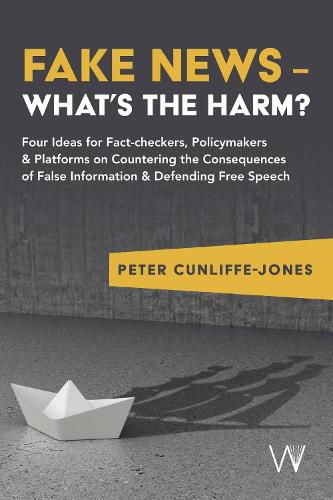Readings Newsletter
Become a Readings Member to make your shopping experience even easier.
Sign in or sign up for free!
You’re not far away from qualifying for FREE standard shipping within Australia
You’ve qualified for FREE standard shipping within Australia
The cart is loading…






Former news reporter and founder of Africa's first fact-checking organisation Peter Cunliffe-Jones argues that since concern about 'information disorder' soared in 2016, we have laboured under flawed assumptions about the nature and effects of 'fake news' and misinformation. Based on a four-year review of 250 case studies, Cunliffe-Jones sets out four ideas for fact-checkers, policymakers and platforms to curb harmful consequences and protect wider freedom of speech. First, information disorder is about more than misinformation. Second, misinformation in offline settings can cause as big a problem as misinformation online. Third, misinformation that affects policymakers can be as bad as misinformation that affects the public. Fourth, he proposes a model for fact-checkers, researchers and platforms to distinguish false claims that do and do not have substantive potential to cause substantive consequences.
$9.00 standard shipping within Australia
FREE standard shipping within Australia for orders over $100.00
Express & International shipping calculated at checkout
Former news reporter and founder of Africa's first fact-checking organisation Peter Cunliffe-Jones argues that since concern about 'information disorder' soared in 2016, we have laboured under flawed assumptions about the nature and effects of 'fake news' and misinformation. Based on a four-year review of 250 case studies, Cunliffe-Jones sets out four ideas for fact-checkers, policymakers and platforms to curb harmful consequences and protect wider freedom of speech. First, information disorder is about more than misinformation. Second, misinformation in offline settings can cause as big a problem as misinformation online. Third, misinformation that affects policymakers can be as bad as misinformation that affects the public. Fourth, he proposes a model for fact-checkers, researchers and platforms to distinguish false claims that do and do not have substantive potential to cause substantive consequences.